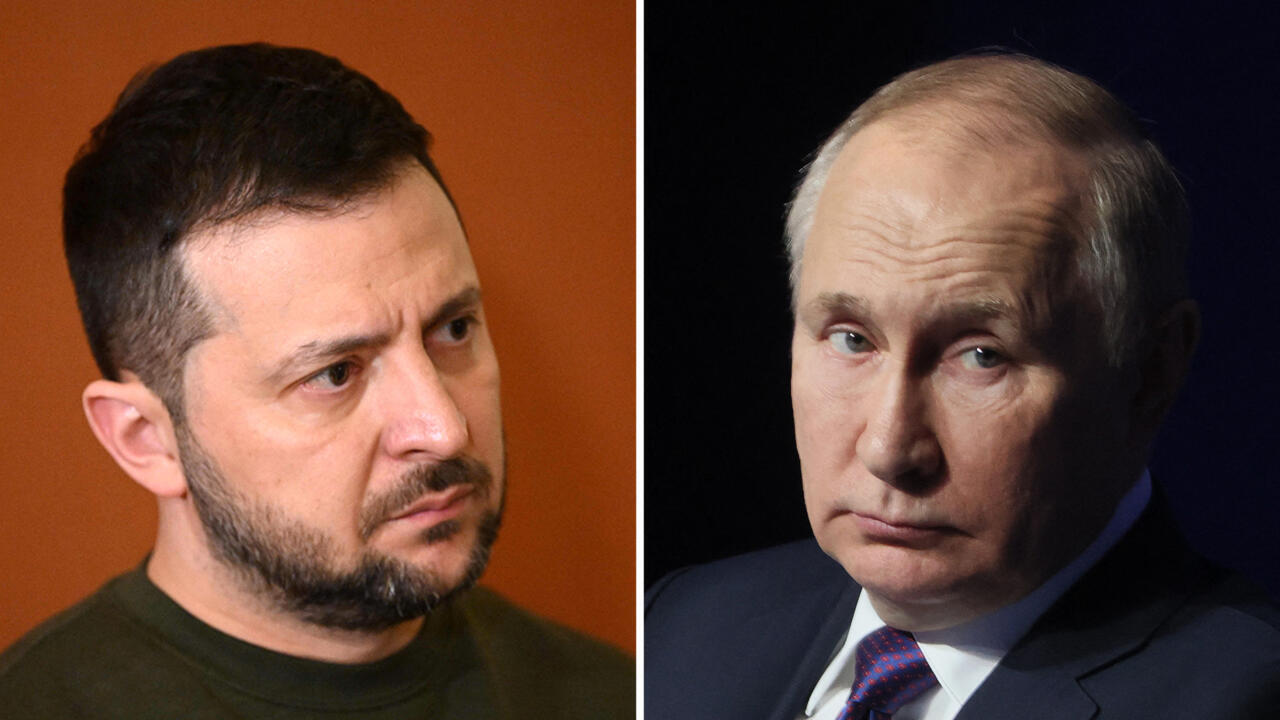
Russian President Vladimir Putin proposed direct negotiations with Ukraine to end the ongoing conflict, but did not mention a 30-day ceasefire plan supported by European leaders and the United States.
Speaking to the Kremlin earlier on Sunday, Putin suggested a resume of talks held in Istanbul on May 15, saying: “We propose to the Kiev authorities to resume their talks that they broke down in 2022, and I stress that there are no prerequisites.”
In the early days of the war, Russia and Ukraine had previously held negotiations in Istanbul, but these negotiations failed to cease the war. Putin added that he will speak with Turkish President Recep Tayyip Erdogan to seek support for the new talks.
“I am committed to serious negotiations with Ukraine,” he said, stressing the need to resolve what he called the “root cause” of the war – the complaints are often associated with long-term Russia’s dissent for the coherence of the West in Ukraine.
Putin expressed openness to the new ceasefire agreement in the proposed talks, but he strongly criticized what he called the West’s “last-to-pass atums” and “anti-Russian rhetoric.” He did not directly acknowledge the ceasefire proposal proposed by leaders from Ukraine and France, Germany, Britain and Poland several hours ago.
European leaders joined in Kiev’s Ukrainian President Volodymyr Zelensky, urging Moscow to accept a 30-day unconditional ceasefire starting Monday, warning of other sanctions if Russia fails to comply with Russia.
French President Emmanuel Macron said when he returned from Ukraine that Putin’s proposal might be a “buy time” strategy. “By definition, no negotiations were conducted before the unconditional ceasefire,” he stressed.
The ceasefire program has received extensive international support. “We just… decided to support a ceasefire that will begin next Monday without any prerequisites,” Macron said at a press conference held by Keefe. The news comes after a joint meeting with German Chancellor Friedrich Merz, British Prime Minister Keir Starmer and Polish Prime Minister Donald Tusk.
The leaders also held video conferences with other countries from about 20 other countries from the pro-Ukrainian coalition. In the event of a ceasefire violation, Macron warns that “massive sanctions” are being coordinated between the United States and Europe.
U.S. President Donald Trump responded on his Truth Society platform, calling it a “possible good day for Russia and Ukraine” and promised to continue working with both sides. Despite previous criticism for his position on Moscow, Trump has recently expressed frustration at the long-term nature of the war and expressed impatience with Putin.
British Prime Minister Starmer echoes the growing coherence among Western powers, saying the Kiev talks show “absolute solidarity among countries around the world, including the United States.”
Polish Prime Minister Tusk described the atmosphere as a turning point, adding: “For a long time, we feel that the entire free world is truly united.”
European Commission President Ursula von der Leyen also supported the proposed truce, calling for its unconditional implementation as a means of meaningful peace negotiations.
Meanwhile, a day after Putin presided over a military parade in Moscow, a symbolic display of unity has been symbolically demonstrated since the defeat of Nazi Germany. Although Ukrainian forces reported that during this period he announced that the event’s reports continued at normal intensity, he had announced a three-day ceasefire for the event.
